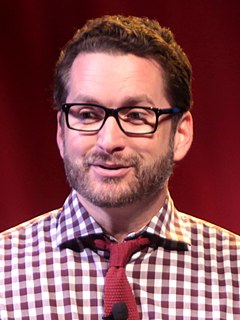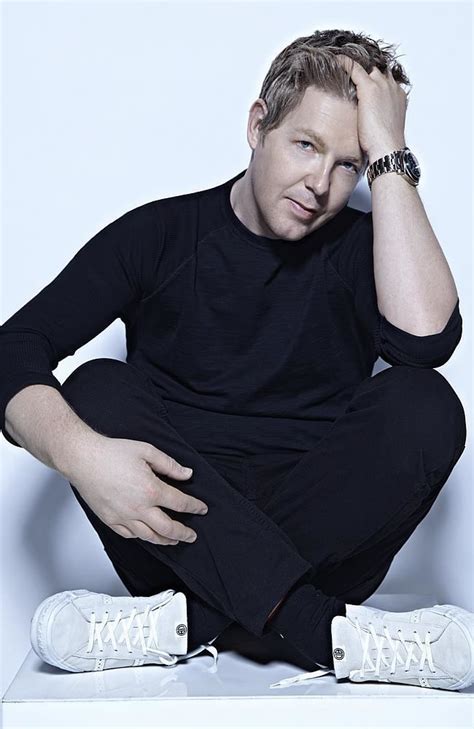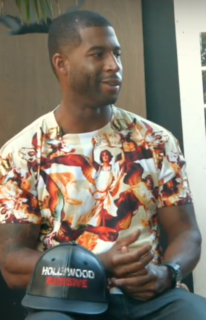A Quote by Burnie Burns
We're so used to financing things on our own that we always have a plan in place to sort of scale our ideas.
Related Quotes
Our third partner [with Neal Dodson] was this other guy called Corey [Moosa], and he came in with good ideas and also some access to money, and so we joined forces and drew up a business plan and got financing for the beginnings of the company. We had no idea what we were doing really. We just started looking through material and started producing our own stuff.
From the first days of my career as an entrepreneur, I have always used my own and my team's lack of experience to our advantage. In fact, at our first venture, Student magazine, we used our newcomer status to secure great interviews and generate publicity - people were excited about our new project and wanted to get involved. Our inexperience fed our restless enthusiasm for trying new things, which became part of our core mission.
When we cultivate mystical awareness or transcendent identity--which is a natural outgrowth of meditation and other practices--what happens is that we begin to take a witness position on our own lives, and that includes our minds. We break the illusion that we think our own thoughts, which is not always the case. Some ideas just arrive in our heads.
Regular maps have few surprises: their contour lines reveal where the Andes are, and are reasonably clear. More precious, though, are the unpublished maps we make ourselves, of our city, our place, our daily world, our life; those maps of our private world we use every day; here I was happy, in that place I left my coat behind after a party, that is where I met my love; I cried there once, I was heartsore; but felt better round the corner..., things of that sort, our personal memories, that make the private tapestry of our lives.
When we sit thoughtfully pondering in a quiet place and the Spirit speaks to us, there will come into our hearts and souls the things that are truly our greatest desires, those things that are more important in the long run than anything else. Away from the appeal of the world, that greatest desire usually relates to relationships with family and with the Lord. And when that priority is in place, then we begin to plan our lives with purpose. We begin to have goals that cause us to live with anticipation.
We are mortgaging ourselves to foreigners on a scale that would make George Washington cry. Every day - every single day - we borrow a billion dollars from foreigners to buy petroleum from abroad, often from countries that hate us. We are the beggars of the world, financing our lavish lifestyle by selling our family heirlooms and by enslaving our progeny with the need to service the debt.
What I want to argue for is not that we should give up on our ideas of success, but that we should make sure that they are our own. We should focus in on our ideas and make sure that we own them, that we're truly the authors of our own ambitions. Because it's bad enough not getting what you want, but it's even worse to have an idea of what it is you want and find out at the end of the journey that it isn't, in fact, what you wanted all along.
Each hamlet or village or town should be a place, its own place. This is not a matter of fake historicism or artsy-craftsy architecture. It is a matter of respect for things existing, subtle patterns of place woven from vistas and street widths and the siting and color and scale of stores, houses, and trees... If the countryside is to prosper, it must be different from city or suburb... The difference is in part the simple business of containing our towns and giving them boundaries.
Given the scale of the ecological crisis we are facing this is the appropriate scale of expansion. Occupying the streets to bring about change as our ancestors have done before us. Only this kind of large-scale economic disruption can rapidly bring the government to the table to discuss our demands. We are prepared to risk it all for our futures.
Let us remember, too, that greatness is not always a matter of the scale of one’s life, but of the quality of one’s life. True greatness is not always tied to the scope of our tasks, but to the quality of how we carry out our tasks whatever they are. In that attitude, let us give our time, ourselves, and our talents to the things that really matter now, things which will still matter a thousand years from now.






































